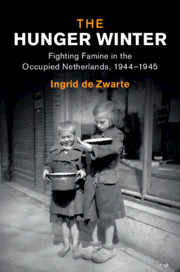Refine search
Actions for selected content:
8 results
Chapter 5 - Prehistory Regained
-
- Book:
- The Invention of Technology
- Published online:
- 27 January 2026
- Print publication:
- 05 March 2026, pp 160-213
-
- Chapter
- Export citation
Chapter 1 - In Time of War
-
- Book:
- The Quest for Individual Freedom
- Published online:
- 12 April 2025
- Print publication:
- 10 April 2025, pp 11-55
-
- Chapter
- Export citation
Between Rocks and a Hard Place: Village Heads in Polish Villages during the German Occupation and the Holocaust
-
- Journal:
- Slavic Review / Volume 84 / Issue 1 / Spring 2025
- Published online by Cambridge University Press:
- 21 July 2025, pp. 64-78
- Print publication:
- Spring 2025
-
- Article
-
- You have access
- Open access
- HTML
- Export citation
Chapter 9 - Theatre during the Second World War
-
-
- Book:
- A History of Polish Theatre
- Published online:
- 09 December 2021
- Print publication:
- 06 January 2022, pp 242-259
-
- Chapter
- Export citation
Chapter 6 - Mapping Theatre (II)
-
- Book:
- A History of Polish Theatre
- Published online:
- 09 December 2021
- Print publication:
- 06 January 2022, pp 161-187
-
- Chapter
- Export citation
1 - Historical Contexts
-
- Book:
- The Hunger Winter
- Published online:
- 04 July 2020
- Print publication:
- 23 July 2020, pp 17-42
-
- Chapter
- Export citation
4 - Central Government and Food Administration
-
- Book:
- The Hunger Winter
- Published online:
- 04 July 2020
- Print publication:
- 23 July 2020, pp 91-126
-
- Chapter
- Export citation

The Hunger Winter
- Fighting Famine in the Occupied Netherlands, 1944–1945
-
- Published online:
- 04 July 2020
- Print publication:
- 23 July 2020
